News

Govt. to continue economic reforms
With nationalist sentiments are rising in the North and South, the government needs to make a major effort to continue economic reforms and rural development in the face of upcoming Presidential elections, civil society activists claimed.
They added that global financial institutions and development agencies could extend support to encourage equitable sharing of costs and benefits of growth from economic reforms and minimise risks of social conflict from abrupt economic liberalisation.
The country is locked in a political battle between President Maithripala Sirisena and Prime Minister Ranil Wickremesinghe hindering the progress of the country, a leading civil society activist said.
SLFP ministers during their time in the unity government had failed to contribute their share and were never enthusiastic about being the junior partner in a unity government with their long-time rival, the United National Party (UNP)
They were unhappy with what many termed as UNP arrogance led by Prime Minister Ranil Wickremesinghe’s less-than-consultative style.
Afraid of being outflanked by Rajapaksa’s nationalism, the Sirisena SLFP wing resists key governance and reconciliation promises.
This has weakened the support from constituencies that brought Sirisena to power:
Majority of Sinhalese Tamils and Muslims are dismayed by corruption, abuse of power and high cost of living under Rajapaksa regime.
Civil society activists claimed that the current government has also failed to uplift the living standards of the people due to inaction of ministries headed by ministers of two different political parties and the lethargic attitude of officials with different political affiliations.
Addressing a recent meeting, Wickremesinghe emphasized the need of building an economy with the ability to repay massive foreign debts without resorting to foreign borrowings towards this end.
The government has been able to sustain the impacts of economic setbacks in provincial council elections, floods, drought, 52 day political impasse precipitated due to back stabbing of the President and Easter Sunday terror attacks, he said.
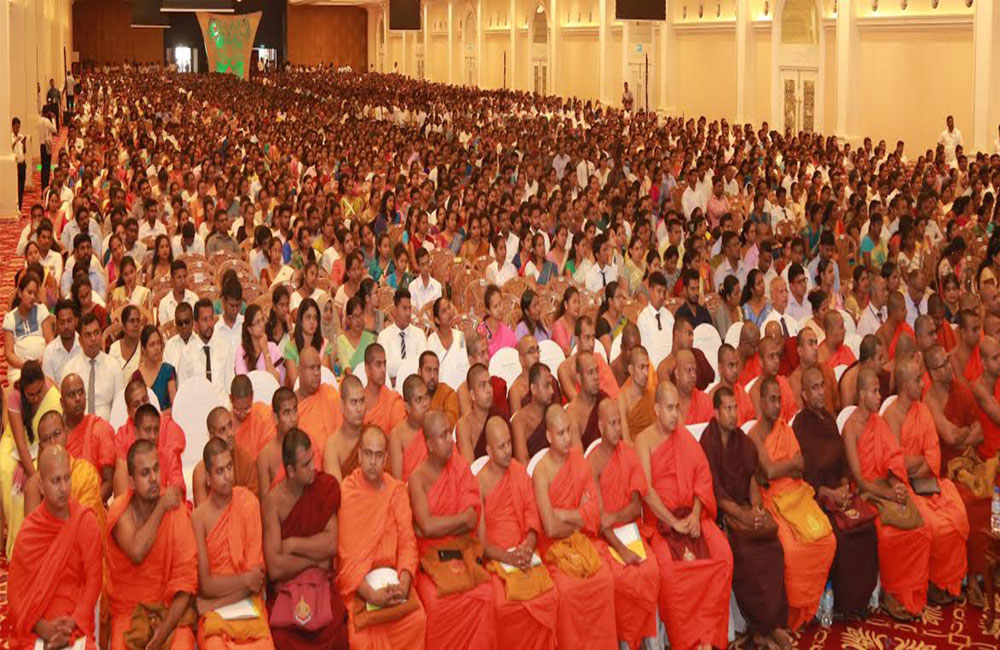
3800 graduates receive Govt. jobs
3800 unemployed graduates received appointments in the public sector on Tuesday at Temple Trees under the first stage of granting appointments to 16,800 graduates in the country.
The graduates were appointed based on a selection programme spanning across all districts in the Island. 880 of the graduates appointed are external degree holders. The Prime Minister's Office said that the graduates were recruited to the Ministries of National Policies, Economic Affairs, Resettlement and Rehabilitation and Northern Province Development and Youth Affairs.
Prime Minister Ranil Wickremesinghe underlined that the aspirations of a few development officials are to move on to another job while others hope to remain in this service. He noted that today they have granted these graduates this training through the e-learning system. He went onto note that they have to create economic development programmes at a rural level parallel to the other rural programmes. The Premier added as these graduates received these appointments, similarly, as a second phase, they will provide jobs by filling the vacancies by recruiting external degree holders.

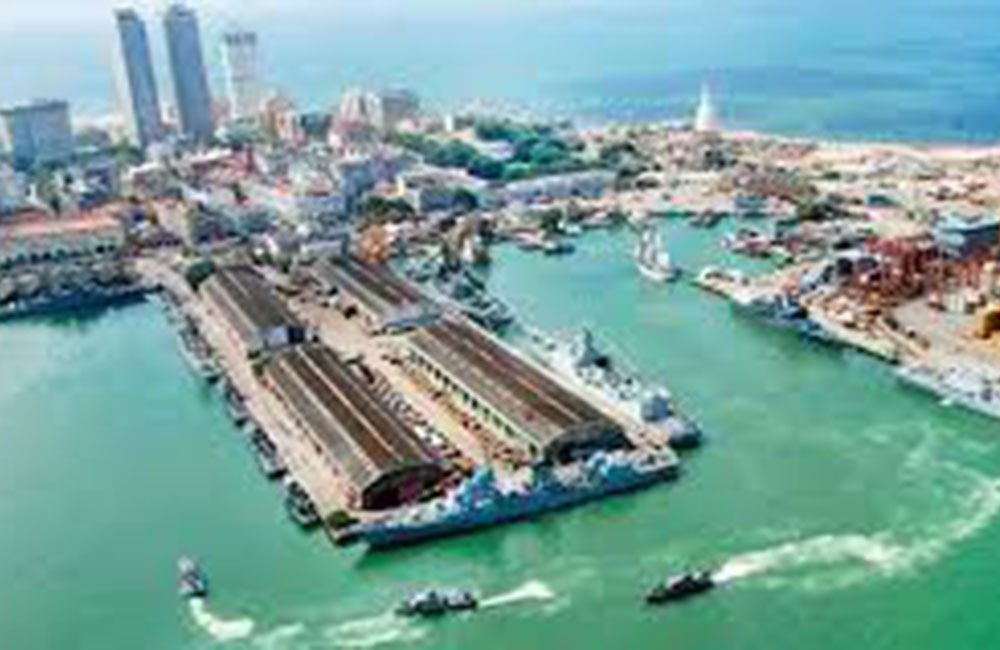
Japan & India get Colombo Port’s ECT rattling China
Colombo Port’s East Container Terminal development finally goes to the management of Japan and India while the overall ownership is vested in Sri Lanka, Sri Lanka Ports Authority (SLPA) sources confirmed.
The signing of the final agreement on the ECT development due in October facilitating the future growth of the Colombo Port, as it has reached its peak capacity, a top official of the SLPA disclosed.
According to the Memorandum of Understanding (MoU), the SLPA retains 100% ownership of the East Container Terminal.
The Terminal Operations Company (TOC), which will be responsible for all operations within the terminal, will be jointly owned by Sri Lanka, Japan, and India.
Sri Lanka will maintain a 51% stake in the company, while Japan and India will hold minority stakes of 34% and 15%, respectively. Development of the ECT will be financed by Japan through a 40-year soft loan of between $ 500-800 million.
The loan will be at a 0.1% interest rate with a grace period of 10 years. The SLPA boasted the terms as one of the best agreements it has ever negotiated.
The move, however, appears to have flustered China which handles the Colombo Port’s Colombo International Container Terminal (CICT) through China Merchant Port Holdings.
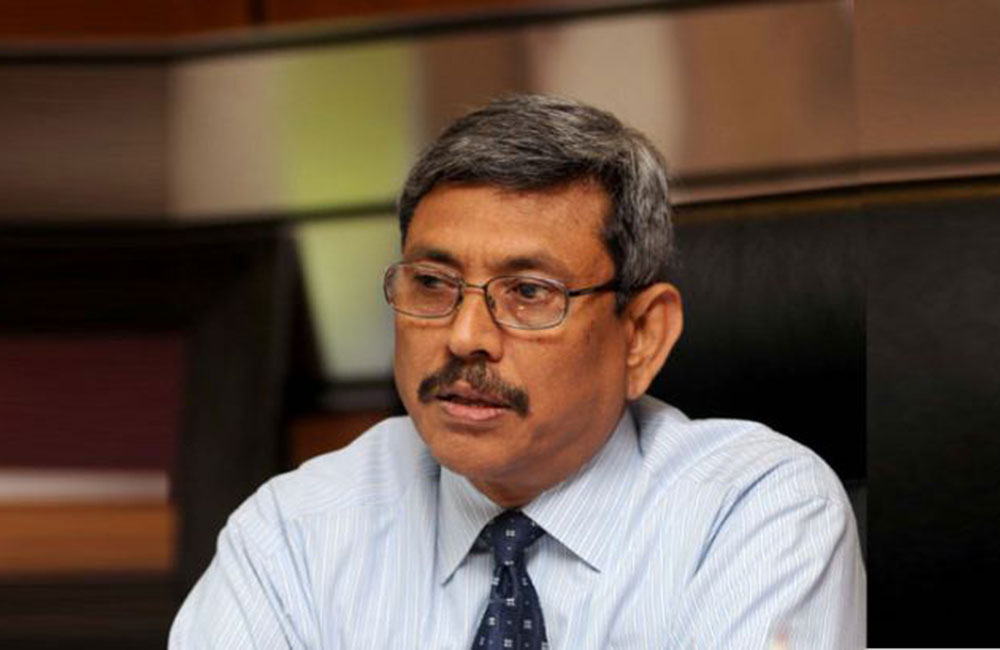
Gotabhaya's latest attempt to get the SLPP presidential candidacy
Gotabhaya Rajapaksa’s lawyers and the Sinhala - Buddhist ‘National Organizations Collective’ have commenced a well planned political programme to obtain the Presidential candidacy of the Rajapaksa camp. Sources say this is in spite of opposition leader Mahinda Rajapaksa binding time without announcing their candidate and asking MP Dinesh Gunawardene to prepare to contest.
According to sources, the programme is as below.
While Gotabhaya has sought to relinquish his US citizenship to contest in the upcoming Presidential election and has handed over the necessary documents to the US government It was reported that he has received a letter confirming that his application to relinquish US citizenship has been received.
Speaking to the media on July 25, Leader of the Piviuthuru Hela Urumaya Udaya Gammanpila told courts that he had seen these documents in person. He added :
“Only a few have seen this documents. I am among them. I can tell without any doubt that the process to relinquish his citizenship is 100% complete. The last step is the State Department releasing the certificate which claims he has given up his citizenship."
“That document was sent to him in May 2019. The US State Department will release the report which mentions those who relinquished their citizenship at the beginning of the next month."
According to Mahindananda Aluthgamage who spoke to The Leader, Gotabhaya had travelled to Singapore for treatment recently using a valid Sri Lankan Passport.
Mahinda’s Opposition !
However according to sources, Mahinda Rajapaksa has now asked Gotabhaya to present proof that he has successfully reliqnuished his US citizenship prior to August 10 in order to be declared as the SLPP candidate at the party convention scheduled to be held on August 11.
He has apparently told his younger brother that the letter stating the US has received his application to give up his citizenship will not be sufficient. However, facing a tough situation to obtain this confirmation by then, his advisors have decided to now take a number of steps to circumvent the issue.
Solution from Minister Vajira!
As a result, it was proposed to obtain a letter of certification from the Minster of Internal Affairs, Vajira Abeywardene and then file a human rights case before the Supreme Court.
Gotabhaya's lawyers have advised him to request for a letter from the Minister of Internal Affairs in writing on his Sri Lankan citizenship in order to confirm that he has taken all steps to relinquish his US citizenship.
His advisors believe that he will receive a favourable response from Minister Vajira Abeywardene. An associate close to Gotabhaya has requested a few family members of the Prime Minister to act humanely towards Gotabhaya in this situation, sources said.
Based on the response from the Minister, Gotabhaya has taken steps to file a HR petition asking the courts to uphold his right to enter the Presidential election. They are also set to commence an anti government campaign at the same time to make these efforts successful.
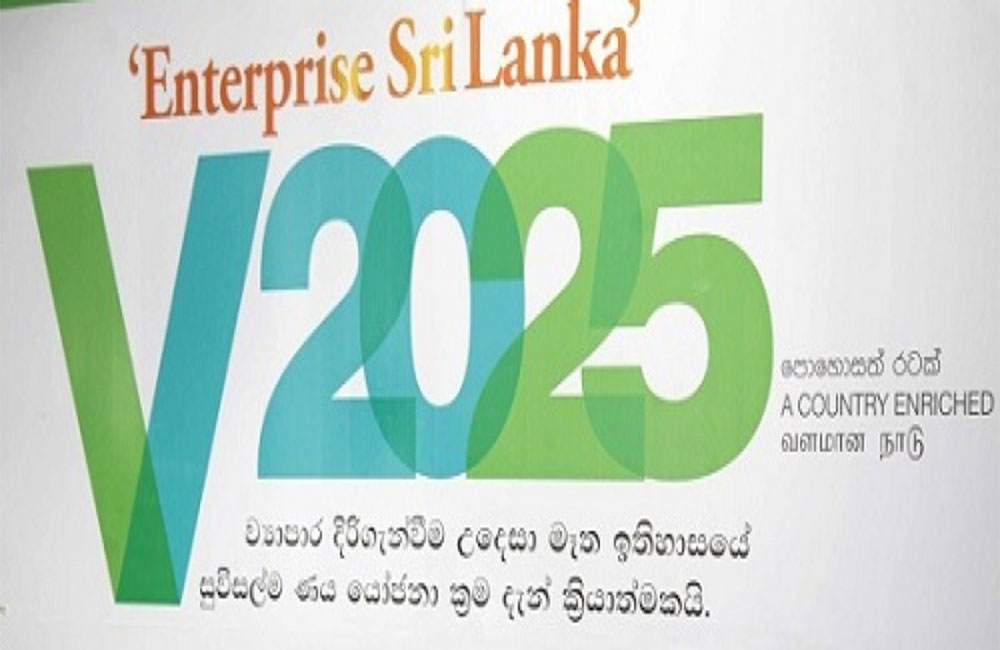
Beware of scammers who offer 'Enterprise Sri Lanka' loans: Finance Ministry
The Ministry of Finance in a statement today said that they have received reports that several organised groups of fraudsters have exploited the letter head of the Ministry to send letters to loan applicants and institutions who have applied for loans under the Government’s Enterprise Sri Lanka credit schemes saying that their loans have been approved.
According to this scam, these organised fraudster groups is said to have informed the unsuspecting loan applicants who are seeking subsidized loans under the Enterprise Sri Lanka programme, that their loans are approved and, have requested them to pay a certain percentage of the expected loan in order to release the loan in full.
This ministry said that they possess evidence to prove that a group including an individual named Jayampathi Karunamuni who is posing as the Director of the Clearance Unit of Loans of the Development Finance Department of the Ministry of Finance and another individual, posing as Chandra Jayasinghe, are said to have sent these fraudulent letters.
Finance Ministry spokesperson said that there is no such a division in the finance ministry.
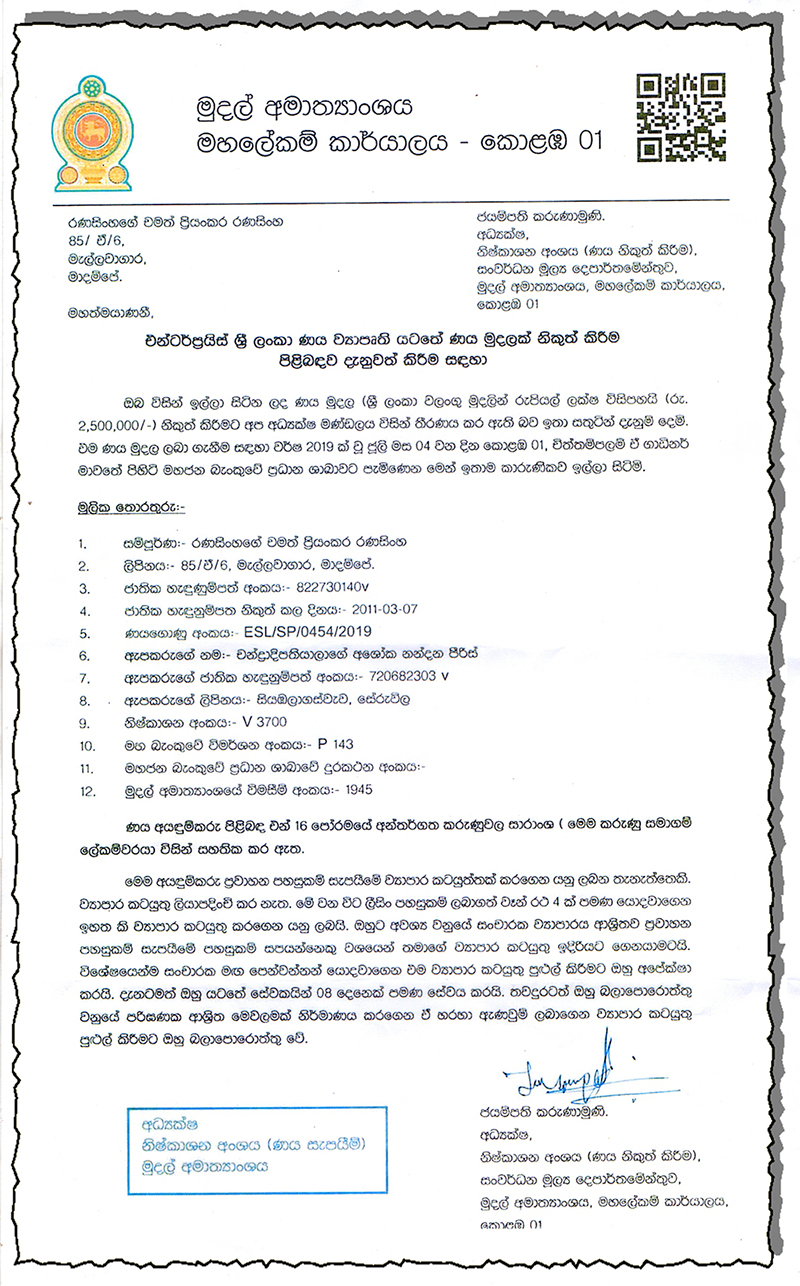
Under the Enterprise Sri Lanka loan scheme, only loan applications are registered by the Ministry of Finance. Apart from that, the Finance Ministry neither release loans nor make recommendations for any prospective loan applicants.
The Ministry also reiterates that it does not charge any money for its role in this regard. The loans under the Enterprise Sri Lanka programme are granted by State and Private Commercial banks only.
Therefore, the general public are requested to negotiate only with the permanent staffs that are serving in the premises of the respective commercial banks with regard to obtaining loans under Enterprise Sri Lanka. If any group or an individual demands you any money saying that your loan has been approved, you are hereby noticed to inform of such fraudulent groups or individuals to the nearest police station.
The Finance Ministry said that they have given out LKR 88 billion in loans to more than 55,000 entrepreneurs under the programme initiated by Finance Mangala Samaraweera.
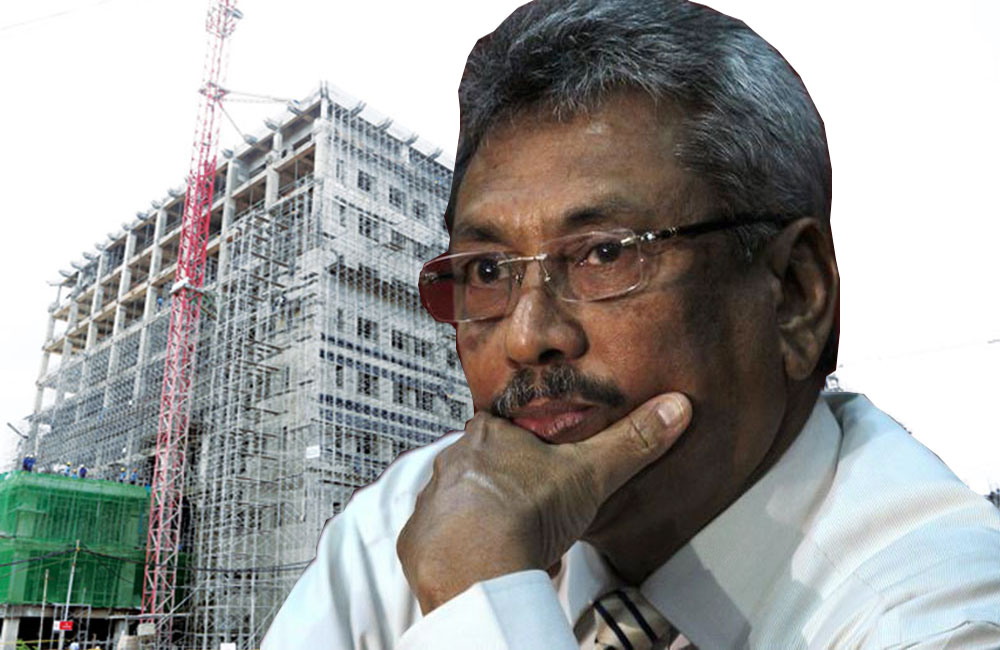
Defence HQ building mooted by Gotabhaya gorging taxpayer money
It was a bitter pill for Sri Lankans to swallow as the controversial Pentagon-styled Defence Headquarters building complex at Akuregoda, Battaramulla has become a white elephant that has consumed millions of rupees from the country’s taxpayer money, a senior Cabinet Minister revealed.
The project was launched in 2011 at an estimated cost of LKR 8 billion to house the Army, Navy and Air Force headquarters moving from the Galle Face Green in Fort to the Battaramulla area, under a plan devised by the former Secretary to the Ministry of Defence and current presidential aspirant Gotabaya Rajapaksa which entailed the shifting of all government administrative buildings to one area.
Another white elephant!
Minister of Megapolis and Western Development, under whose purview the land belong toPatali Champika Ranawaka noted that according to the plan of the former regime, the project should have been completed in 2018.
However, the Minister said that a sum of LKR 64 billion has been spent so far on this ‘white elephant’ project while another LKR 100 billion is needed to complete the massive project.
Sources from the Treasury said that the project will resume if and when the necessary funding is raised for the project adding that there is a possibility of construction work being disrupted due to budgetary constraints.
The project commenced during the tenure of Gotabhaya Rajapaksa and the cost estimate went up to LKR 20 billion.
Funding for the project came from the US$ 125 million earned through the outright sale of the Galle Face land to Shnagri-La Hotel on a suggestion made by Gotabhaya to the then president Mahinda Rajapaksa.
The controversy surrounding the Shangri-La deal has become a jigsaw puzzle even at present as big players in the deal are still in the local political arena eying for power again, a senior official said.
Estimated cost vs actual cost!
According to the decision of the Cabinet of Ministers on 25 January 2011, it was decided to construct a building to house the Security Forces Headquarters with more than 211,500 square metres at an estimated cost of LKR 25 billion and scheduled to be completed in two stages.
However, the designs thereon had been changed subsequently and increased the size of the building up to 411,915 square metres and as a result, the estimated cost of the construction had been increased up to LKR 55.60 billion, a report from the Auditor General revealed. Further, a sum of LKR 19 billion had been spent as at 31 December 2017.
The physical progress of the construction work of the three buildings identified on priority basis had remained over 60 per cent.
However, the overall physical progress of all construction work as at 31 March 2018 had remained at 48 per cent. Furthermore, the completion date of the construction work had been extended up to 30 June 2020 according to the revised work plan.
Since 2011, the offices of the Sri Lanka Army had been located in the buildings owned by government institutions and private sector organisations within the Colombo city and suburbs after removing the Army headquarters from its Galle Face premises.
Therefore, the 10 buildings totaling 555,036 square feet had been hired for that purpose as at 31 December 2017 and rents amounting to LKR 1,293 million had been paid as at that date.
In the meantime, these forces have been provided with temporary accommodation in 15 rented buildings at an annual rent of LKR 5 billion, he said adding that the abrupt and unplanned decision taken by the previous regime to shift the Defence headquarters to Akuregoda has put future generations under a heavy debt burden.
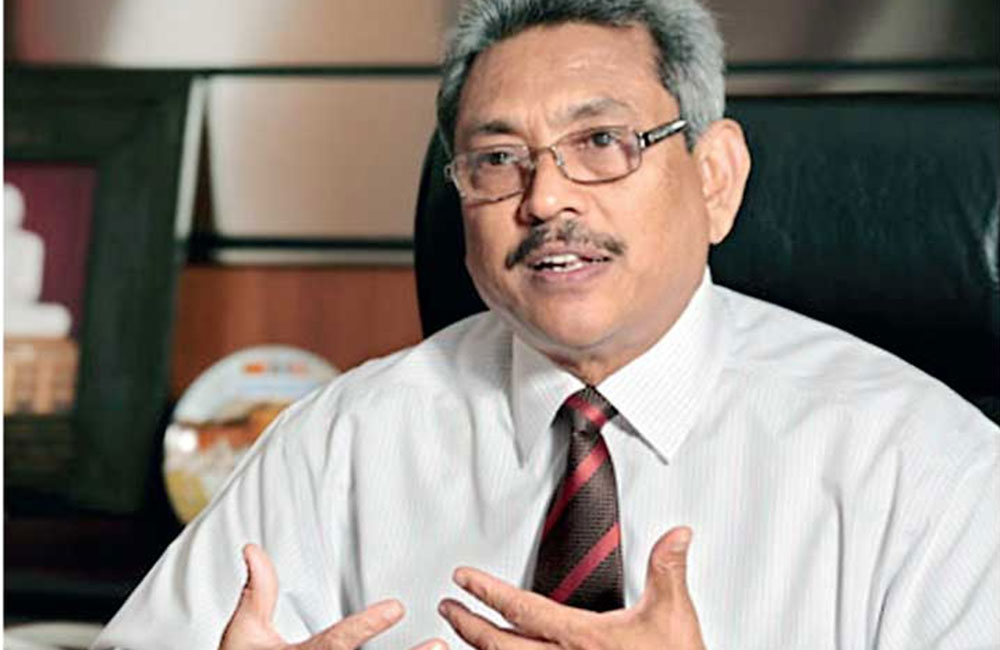
Will show original document to EC - Gota
Former Defence Secretary Gotabhaya Rajapaksa says he is now in possession only of a Sri Lankan passport, which he had obtained after surrendering the passport for dual citizens adding that he would present the original Certificate of Loss of Nationality of the United States received by him to the Elections Commission as and when required.
Rajapaksa has made this comment in response to the fake document claiming to be his Certificate of Loss of Nationality of the United States that was circulated in social media yesterday (30).
According to the former Defence Secretary, the document on posted on social media was a fake and that he was in possession of the original copy received by him from the US authorities.
“The document that is being shared is a fake. I have the real copy with me,” he said.
However, Rajapaksa says he would not publicly share the original document as there was no requirement for it.
“I will provide the documents when required to the relevant authorities like the Elections Commission,” he said.
After noting that he is now in possession only of a Sri Lankan passport and not a dual passport, Rajapaksa said, “The Immigration Controller knows that I am now a single passport holder since I have received my new Sri Lankan passport, which I received after surrendering my former dual passport.”

Duty Free shopping at Katunayaka airport fails to epitomise luxury
World Duty Free, commonly known as WDF, epitomises luxury and is considered to be the Rolls Royce of the duty free industry.
WDF presents world-renowned brands imported directly from brand manufacturers and offers all its customers a memorable shopping experience.
The stores in both the departure and arrivals halls have products in all categories such as spirits, confectionery, perfume and cosmetics.
Along with fantastic promotions, an immaculate world class store layout and an unmatched level of Sri Lankan hospitality and customer service, WDF is truly a world class experience.
Travellers who pass through the Bandaranaike international Airport (BIA) are yet to gain a such sense of satisfaction in not only getting the best possible duty free shopping deals and superior products but also an unmatched level of service..
It is high time for Sri Lankan authorities to conduct an investigation to find out the shortcomings and take necessary remedial measures, a group of senior officials suggested to the government recently.
No suitable methodology has been introduced by the responsible parties to monitor the prices of items sold at Duty Free shops at the airport.
Therefore, it has been observed that the prices are determined on the discretion of the shop owners.
Due to non-recovery of custom duties for the items sold at these shops, the government has incurred a great loss in tax revenue.
Furthermore, there was no proper methodology to confirm that the benefit of the tax relief goes to the air travellers.
There were instances where no proper supervision made by responsible parties on duty free foreign liquor shops established at the Colombo Port, Katunayaka Airport and State Trading Corporation.
Under such circumstances, it has been pointed out by the government audit regarding the influx of duty free foreign alcohol to the open market and the effect caused to the tax revenue to be recovered by the government on local alcohol. However, no proper action has been taken to rectify the situation.
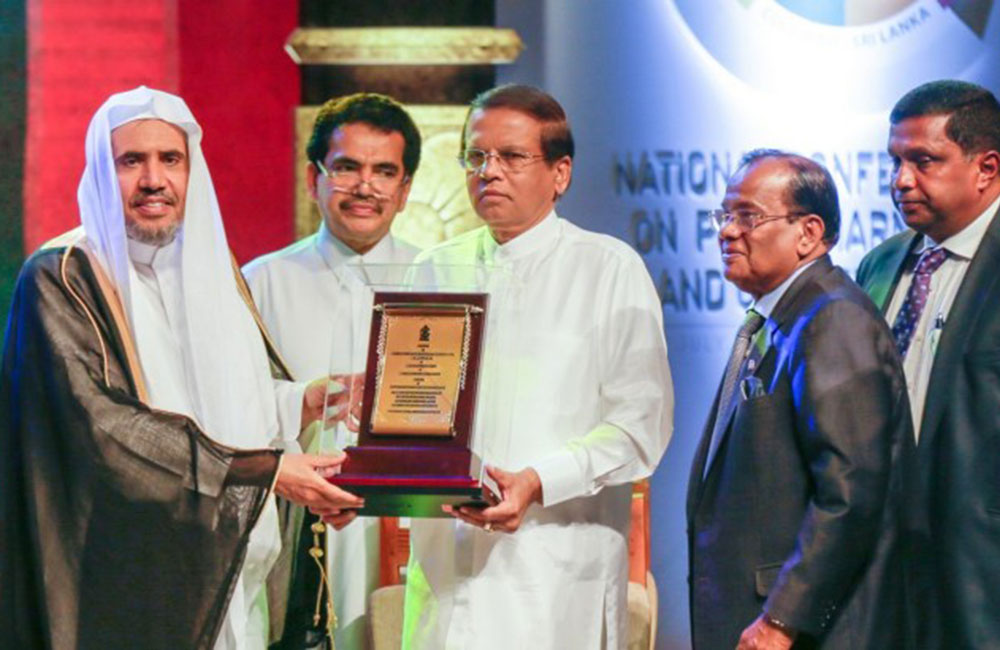
Politicians should fulfill their national responsibility - President
President Maithripala Sirisena emphasised that religious leaders should take the lead in mending the hearts of the people that were broken in the tragic incident of April 21st. and added that politicians should fulfill their national responsibility in this regard leaving aside their narrow political agendas.
President Sirisena made these observations addressing the National Conference on Peace, Unity and Reconciliation held at the Nelum Pokuna Theater in Colombo, yesterday (30).
Although the lives lost due to the Easter Sunday attacks cannot be restored, the President said that everyone can come together to defeat terrorism and ensure peace, unity and reconciliation in the country for the sake of the future generation.
Sirisena added that the government has taken every possible step to eradicate the hatred, fear, suspicion and distrust among the people of Sri Lanka following the April 21st terror incident. He further said that all the political parties should come to a consensus under the guidance of all religious leaders to ensure national unity.
Accordingly, the President also pointed out that it is the responsibility of everybody to abstain from acts and conducts that create fear and distrust among the people.
This national conference was held with the participation of religious leaders and politicians.
The main objective of the conference is to promote peace, harmony, tolerance and trust among different ethnic groups and religions in Sri Lanka, to deliver the message to the world that different religious communities live in peace and harmony, and to ensure that the people of this country live in harmony and reconciliation.
A large number of religious leaders and foreign dignitaries including the Secretary General of the Muslim World League, Dr. Muhammad Bin Abdullah Karim Al Issa also participated in this event.
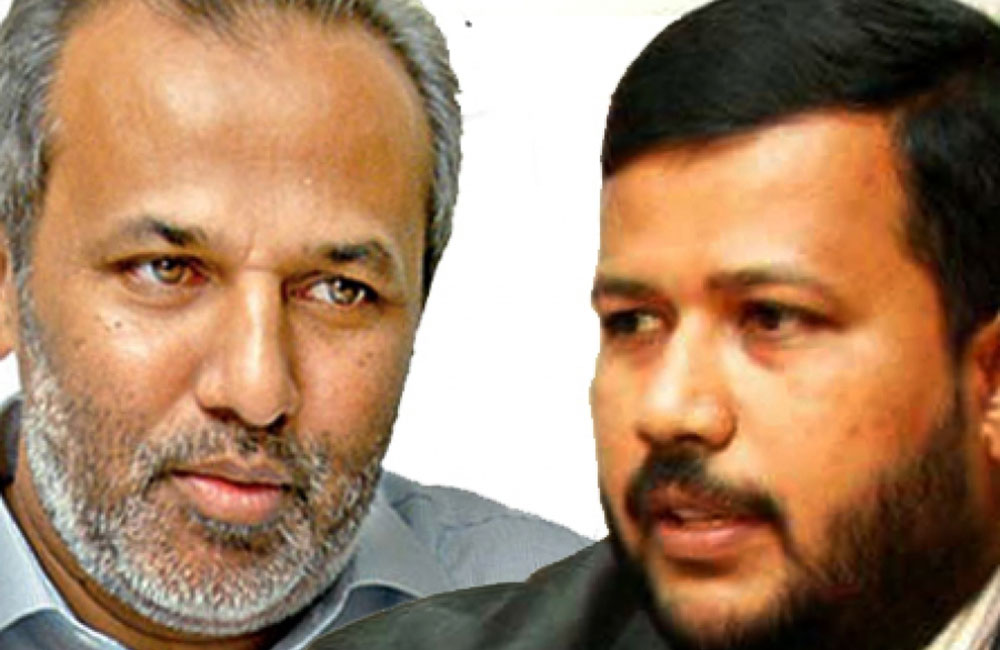
Rauf and Rishad to attend the Cabinet meeting
Ministers Rauf Hakeem and Rishad Bathiudeen are to attend this week’s Cabinet meeting after being sowrn in to their previously held portfolios last night before President Maithripala Sirisena.
Four Muslim MPs, who resigned from their Ministerial portfolios in June due to the tense situation in the country following the Easter Sunday attacks, re-accepted their ministerial portfolios last night.
Accordingly, Rauff Hakeem was sworn in as the Minister of City Planning, Water Supply and Higher Education, Rishad Bathiudeen as the Minister of Industry and Commerce, Resettlement of Protracted Displaced Persons, Co-operative Development and Vocational Training and Skills Development, Ameer Ali as the State Minister of Agriculture, Irrigation and Rural Economic Affairs and Abdullah Maharoof as the Deputy Minister of Ports and Shipping.
While all Muslim ministers resigned from their posts in June, UNP MPs Kabir Hashim and M. Haleem re-accepted their portfolios later on claiming they had to adhere to the calls made by the party hierarchy, but pledged to stand together with all Muslim MPs on common issues affecting the Muslim community.
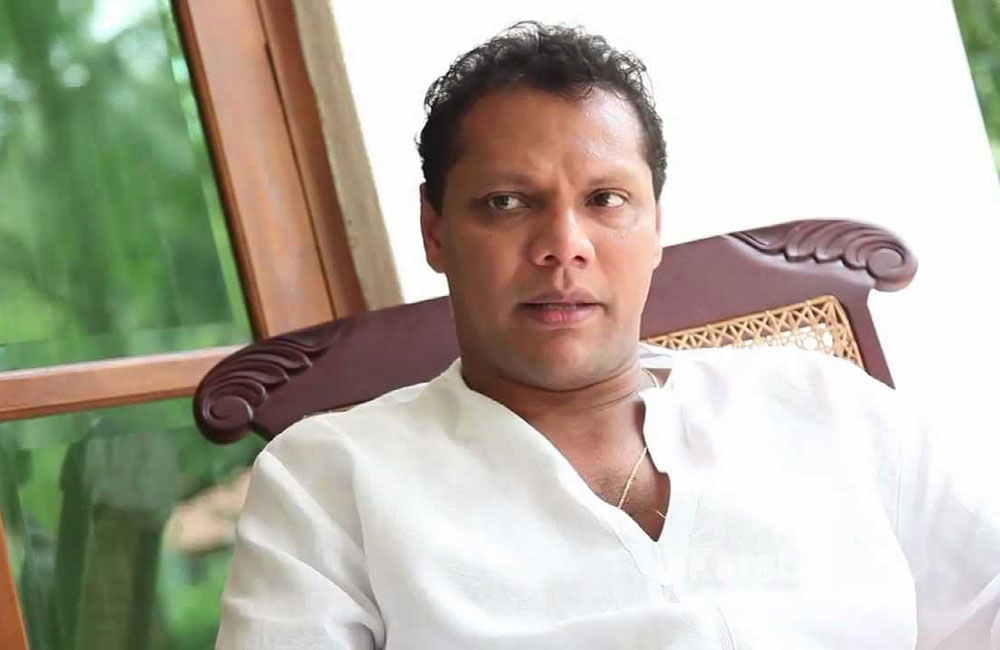
Dayasiri pledges action against SLFPers who attend SLPP convention
The Sri Lanka Freedom Party (SLFP) General Secretary, MP Dayasiri Jayasekara says party members will not be permitted to attend the convention of the Sri Lanka Podujana Peramuna (SLPP) that is scheduled to be held on August 11th at the Sugathadasa Indoor Stadium.
Is an SLFP member wishes to attend the event after receiving a personal invitation, they have to receive prior permission from the party leadership.
Jayasekara says the party will take tough action against any member participating at rallies and events of other political parties without prior approval.
“There were incidents in the past where some SLFP Local Government members attended some of the events that were organised by other parties. But I must say as a party we cannot allow such actions now. Therefore we have decided to take disciplinary steps against anyone attending political events of another party without prior approval,” Jayasekara told a media briefing.
However, there have been instances in the past where SLFP members have participated in events organised by the ‘Joint Opposition’ that were held under the patronage of former President, Opposition Leader Mahinda Rajapaksa who is also the de facto leader of the SLPP.
The August 11th convention of the SLPP is expected to see the announcement of the party’s presidential candidate.
According to Jayasekara, the SLFP had not received any invitation from the SLPP to participate in its maiden convention and as such no official decision has been made on the matter.
SLFP-SLPP alliance
Meanwhile, the SLFP and SLPP are also exploring the possibility of forming a coalition to contest the upcoming Presidential elections as an alliance.
The SLFP Central Committee last week decided to call on President Maithripala Sirisena to directly hold talks with Rajapaksa on forming the proposed alliance.
Jayasekara has further stated that the SLFP is against the SLPP announcing a presidential candidate before the coalition forming process is finalised.
“Even if I get an invitation that does not necessarily mean I will accept it. We all have to work as a party. Therefore when we are holding a position within the party we cannot take individual decisions based on our personnel preferences,” he has said.
The SLFP General Secretary has pointed out that to bridge the gap between the SLFP and SLPP both President Sirisena and Rajapaksa should hold broader discussions to build a common platform so both parties can work towards the same goal.
“A discussion between the President and the Opposition Leader is crucial at this moment to form a coalition between the SLFP and the SLPP. We hope both the President and the Opposition Leader will hold a discussion soon.”
Jayasekara has added that the SLFP would support a national candidate who can lead the county with a vision to bring all political parties and communities together. He stressed that a national candidate should be someone who loves the country but is not limited to one political party.
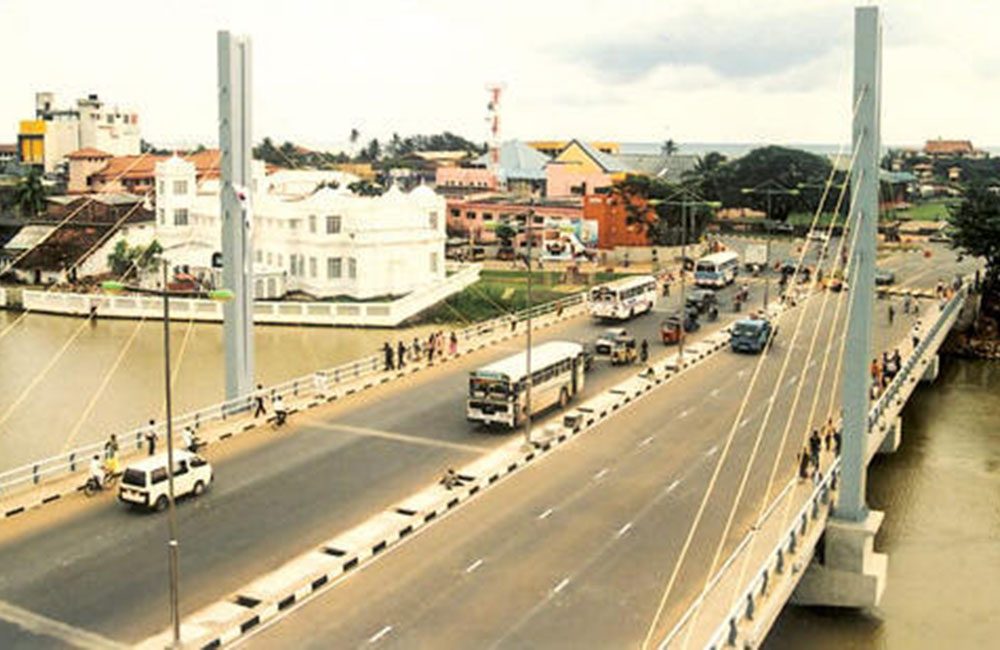
Sri Lanka's Southern Province undergoes sweeping industrialisation
Sri Lanka’s Southern province is now undergoing sweeping industrialisation with the implementation of an unprecedented development plan in the region on the directions of, Prime Minister Ranil Wickremesinghe.
Accordingly, Galle and Matara been earmarked to as investment zones focusing on exports. Furthermore, several large tourism zones of about 500 acres will also to be set up by the government.
A project preparation study has been carried out with the aim of improving the resilience and livability of the city of Matara and the greater Matara area.
The Ministry of Megapolis and Western Development is planning to develop Matara as a strategic city located in the Southern Economic Corridor and the vision is “to develop Matara as a commercial service centre” to achieve the desired level of economic growth while reducing regional disparities.
Ministry of Megapolis was the Technical Partner for the project preparation study and it has been proposed to make climate-compatible, low-carbon and resilient urban infrastructure investments.
It will focus on the improvement of solid waste management, upgrading of the city’s flood protection measures by adopting nature-based solutions where possible, improvement of the storm water drainage infrastructure, and urban regeneration and the improvement of city livability.
These sectors will then be prioritized for future investments by the French Development Agency(AFD) and the Government of Sri Lanka.
A EUR 520,000 grant has been provided for the study by the AFD-European Union funded window of CDIA. Matara was the first among 12 cities to be assisted by Cities Development Initiative for Asia (CDIA) to develop infrastructure projects with climate co-benefits under the AFD-CDIA partnership, a senior official of the ministry said.
In close collaboration with partners, CDIA has provided the overall management of the study, including supervision of international and local consultants who performed it.
At present, Matara faces serious environmental challenges and is highly vulnerable to climate change impacts. Periodic floods linked to storm surge and inadequate storm water drainage cripple the city; while the lack of solid waste management measures continue to pose a risk to the environment and health of the residents.
Page 322 of 534